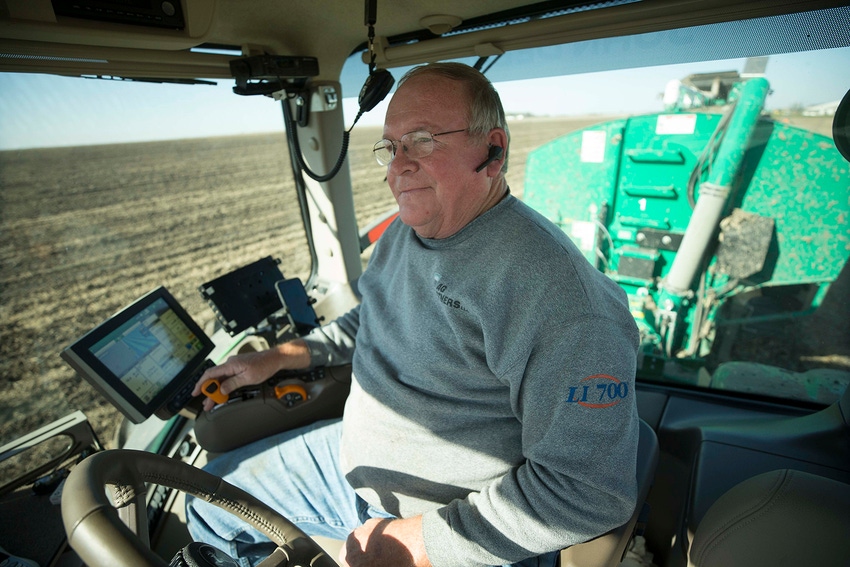USDA invests in 'Partnerships for Climate-Smart Commodities'
Legislative Watch: Reducing greenhouse gas emissions; don't cut crop insurance; USDA updates school nutrition standards; new CR; Wilkes confirmed.

USDA announced a voluntary and incentive-based program to initiate climate-smart practices on working lands. The "Partnerships for Climate-Smart Commodities" is to help advance the role farmers and ranchers play in providing climate solutions.
USDA will be investing $1 billion in pilot projects through Partnerships for Climate-Smart Commodities to create market opportunities for U.S. agricultural and forestry products that use climate-smart practices. The program will also include "innovative, cost-effective ways" to measure and verify greenhouse gas benefits.
Secretary of Agriculture Tom Vilsack said, "America's farmers, ranchers and forest owners are leading the way in implementing climate-smart solutions across their operations. Through Partnerships for Climate-Smart Commodities, USDA will provide targeted funding to meet national and global demand and expand market opportunities for climate-smart commodities to increase the competitive advantage of American producers."
A climate-smart commodity is defined as an agricultural commodity that is produced using agricultural (farming, ranching or forestry) practices that reduce greenhouse gas emissions or sequester carbon.
Funding will be provided to partners through the USDA's Commodity Credit Corporation for pilot projects to provide incentives to producers and landowners to:
Implement climate-smart production practices, activities and systems on working lands.
Measure/quantify, monitor and verify the carbon and greenhouse gas benefits associated with those practices.
Develop markets and promote the resulting climate-smart commodities.
Funding will be provided in two funding pools. Applications seeking grants from $5 million to $100 million are due by April 8 and applications for smaller grants are due May 27.
The Food and Agriculture Climate Alliance, a coalition of over 80 organizations, applauded USDA in announcing the program. FCA members include the American Farm Bureau Federation, American Soybean Association, Ducks Unlimited, Environmental Defense Fund, National Council of Farmer Cooperatives, National Corn Growers Association, National Farmers Union, National Milk Producers Federation, National Pork Producers Council and North American Meat Institute.
Don't cut crop insurance
As the administration prepares its fiscal year 2023 budget, a group of agricultural organizations are urging the administration to protect the crop insurance from cuts.
In a letter to Secretary of Agriculture Tom Vilsack and Office of Management and Budge Acting Director Shalanda Young, the organizations said, "Farmers, agribusinesses, lenders and lawmakers agree that crop insurance is a linchpin of the farm safety net and is crucial to the economic and food and fiber security of urban and rural America. We urge you to continue to support America's farms and ranchers and oppose cuts to crop insurance during this year's budget process."
Those signing the letter were the American Bankers Association, American Farm Bureau Federation, American Farmland Trust, American Soybean Association, Farm Credit Council, National Association of Wheat Growers, National Cotton Council, National Farmers Union, Pheasants Forever and USA Rice.
President Biden's fiscal year 2022 budget proposal did not include any cuts to crop insurance.
USDA updates school nutrition standards
USDA announced it was updating the school nutrition standards beginning in school year 2022-2023 and continue in school year 2023-2024. The new standards are to provide more nutritious meals for school children.
The new requirements for school year 2022-2023 are:
Milk: Schools and child care providers may offer flavored low-fat (1%) milk in addition to nonfat flavored milk and nonfat or low-fat unflavored milk.
Whole Grains: At least 80% of the grains served in school lunch and breakfast must be whole grain-rich.
Sodium: The weekly sodium limit for school lunch and breakfast will remain the current level. Beginning in school year 2023-2024, the sodium limit will be decreased by 10% for school lunch.
All other nutrition standards including fruit and vegetable requirements will remain the same as the 2021 standards.
Another CR to keep federal government funded
The House of Representatives passed another continuing resolution that will keep the federal government funded through March 11. This will extend provisions that were in the December CR that is scheduled to expire on Feb. 18. The new CR will continue the authority for the Livestock Mandatory Reporting program. The Senate is expected to pass the CR next week.
Indications are that Congressional leaders have reached an agreement on a omnibus appropriations bill but need time to finalize the language.
Wilkes confirmed as Under Secretary for Natural Resources
The Senate confirmed Homer Wilkes to be USDA's Under Secretary for Natural Resources. Since 2013, Wilkes has been serving as the director of the Gulf Coast Ecosystem Restoration Task Force.
Source: P. Scott Shearer, who is solely responsible for the information provided, and wholly owns the information. Informa Business Media and all its subsidiaries are not responsible for any of the content contained in this information asset. The opinions of this writer are not necessarily those of Farm Progress/Informa.
About the Author(s)
You May Also Like



